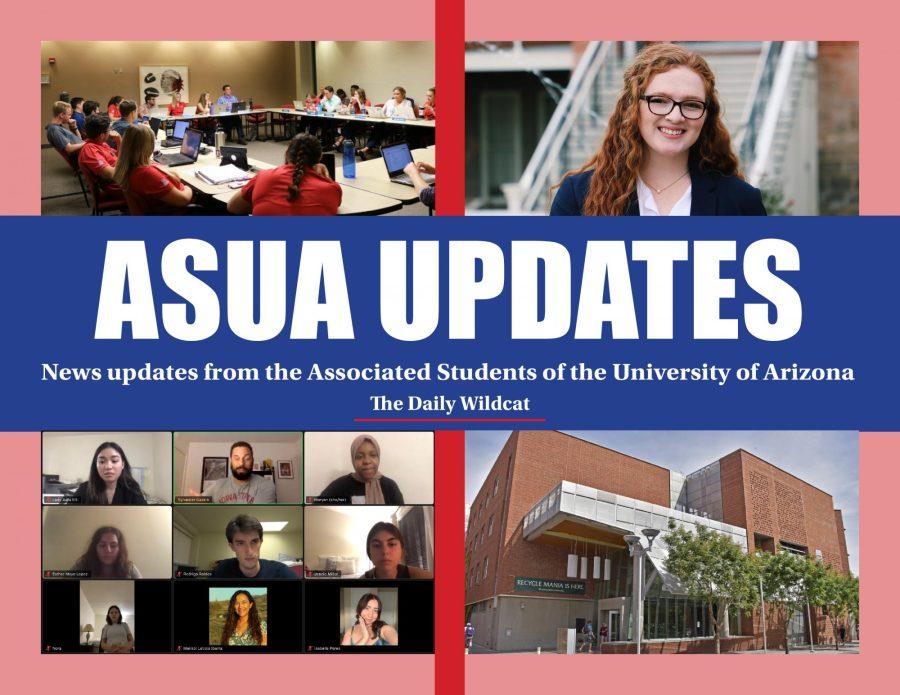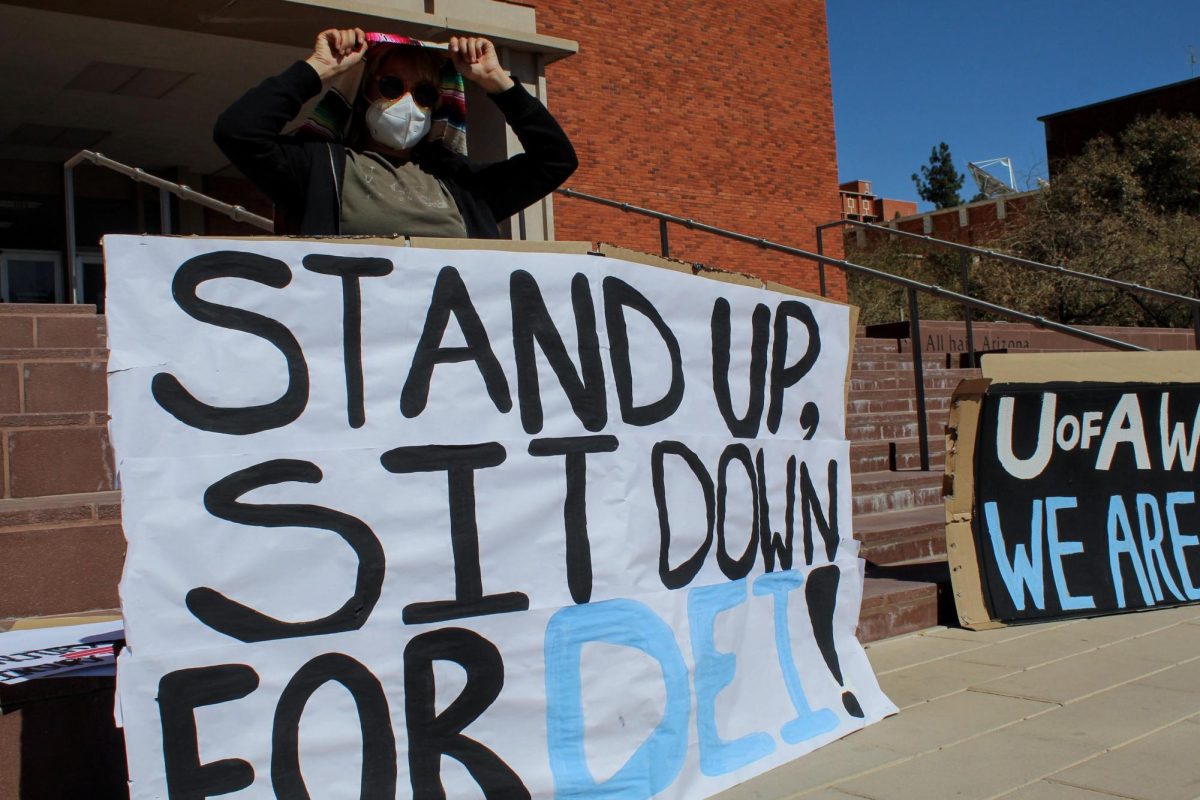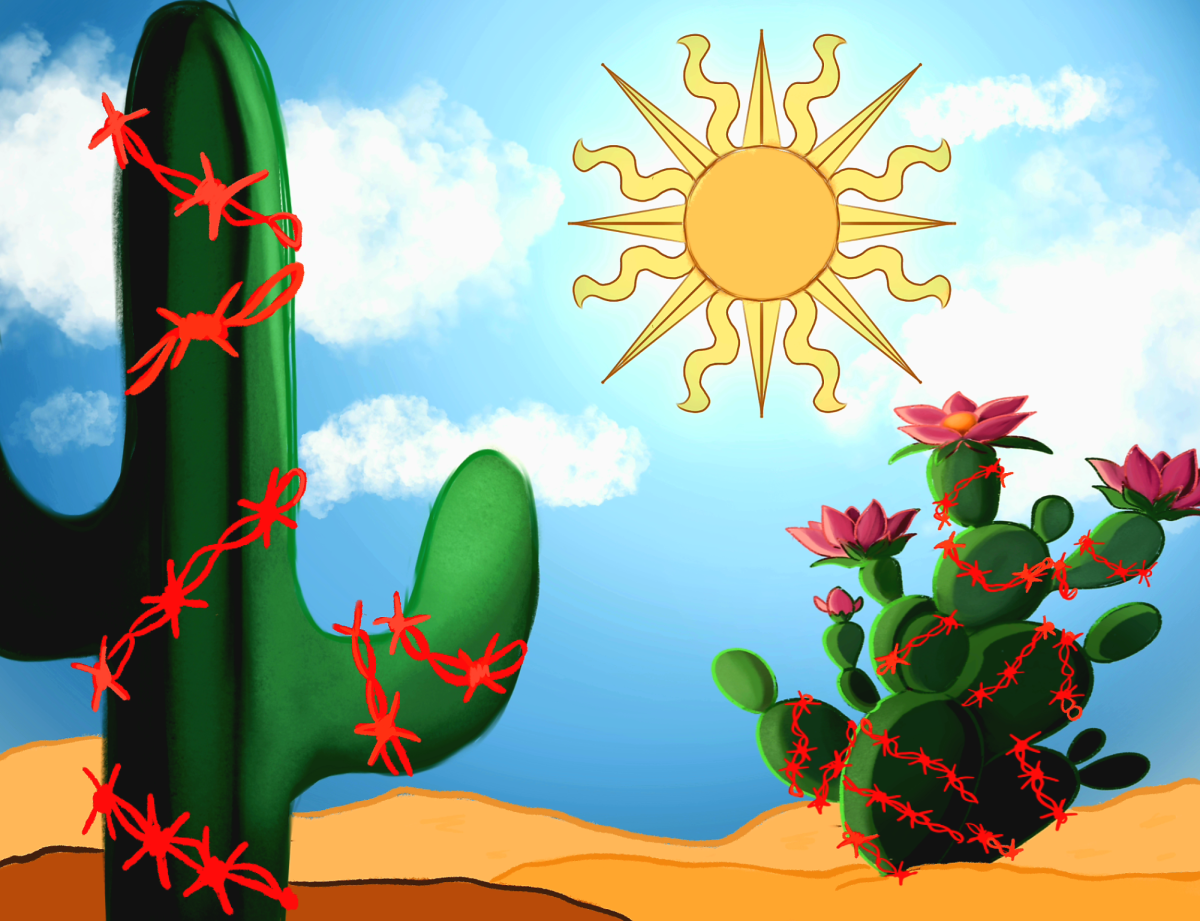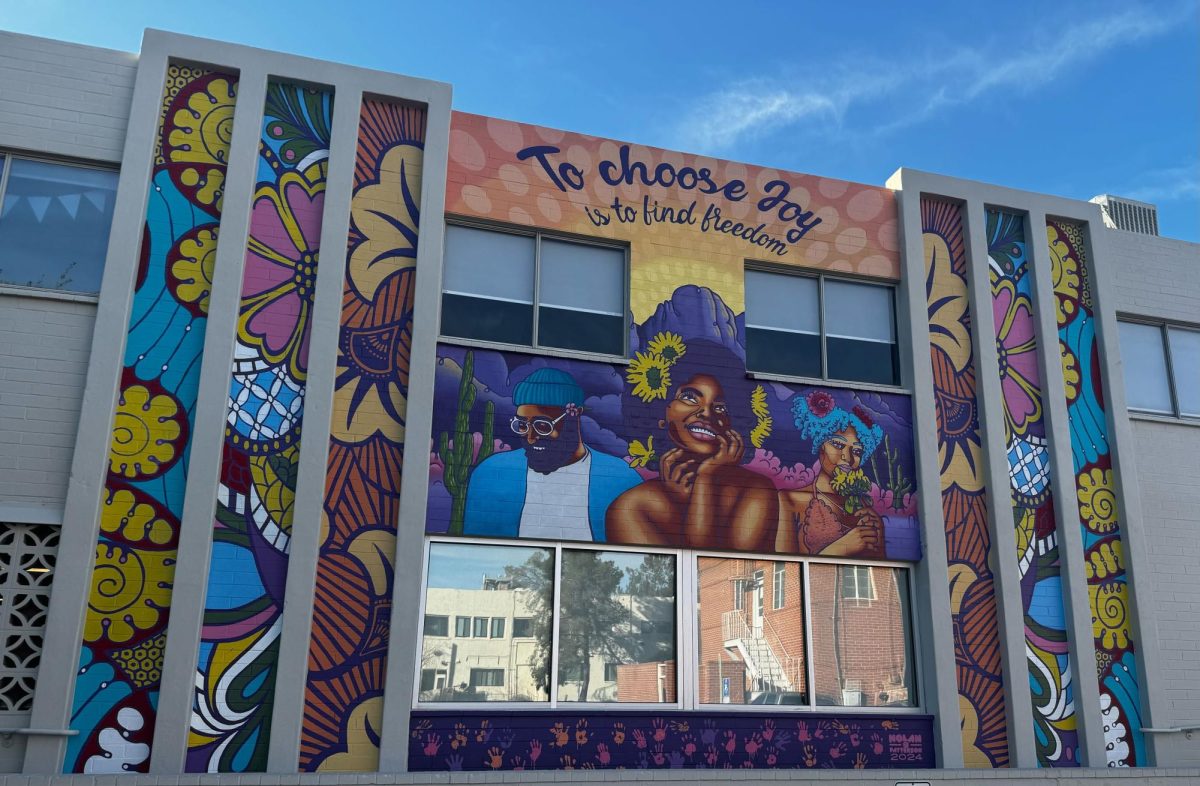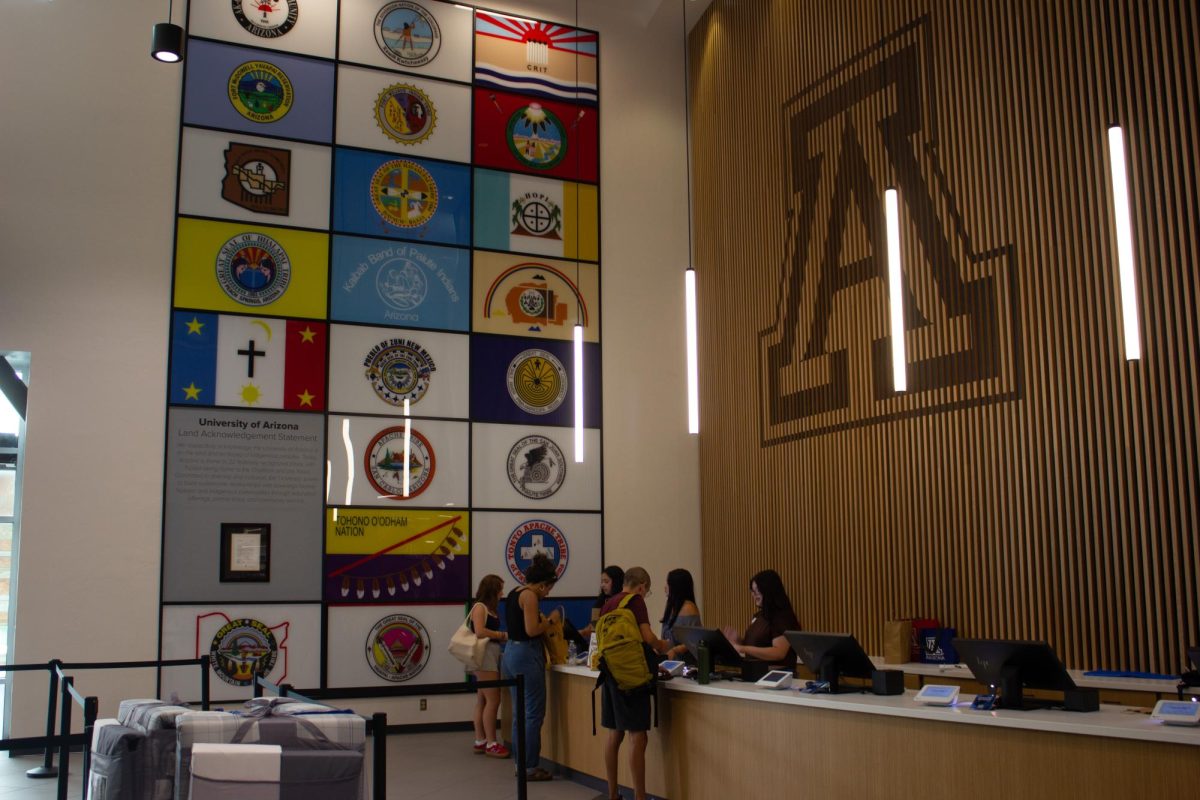With the 2021-2022 student government elections for the Associated Students of the University of Arizona rapidly approaching, the final two candidates for student body president met virtually Friday night for a debate.
The candidates in question are Noah Vega and Rodrigo Robles. Both have prior experience on the ASUA this past school year with Vega serving as executive vice president and Robles as a Senator. Robles’s platform is centered on mental health, diversity and student engagement. Similarly, Vega’s platform emphasizes student engagement and mental health while also calling attention to campus security and university support for students’ needs via Campus Closet and Campus Pantry.
The debate was moderated by a panel including student leaders and Dean of Students Kendal Washington White. Panelists took turns asking the candidates questions, later opening to questions from the audience. Each candidate had one minute to respond and thirty seconds for a rebuttal to the response of the other candidate.
The night kicked off with brief opening statements from Vega and Robles. The candidates both took the opportunity to introduce their background and involvement at the university as well as their hopes for the office.
Vega drew attention to his extensive engagement in different communities across campus including his participation in Greek life, housing and in ASUA. He connected this background with his desire to address different issues on campus and emphasized the key points of his platform being security, creation of a basic resource center, inclusion and mental health awareness.
Robles spoke on his involvement in cultural associations such as the Hispanic Honorary as well as his experience serving as a senator in the ASUA. He characterized that his intention as a president would be to amplify student voices and emphasized his three key topics of focus: student engagement, mental health and diversity.
In several questions, the candidates addressed their qualifications as leaders and their intention in running for student body president.
Robles highlighted his desire to take initiative and to be responsible for advocating for students–a recurring theme of his answers throughout the night. He applied this concept of persistence to his own identity and learning English as a second language.
Vega mentioned his willingness to have potentially uncomfortable conversations with administration in both progressing and representing UA’s culture. He also referenced his insight into different perspectives across campus owing to his diverse campus involvements.
The panel and audience also asked students about their comfort in confronting administration to advocate for students, particularly for students belonging to marginalized communities.
For Vega, accountability was very important, referencing his experience serving on ASUA over the summer communicating demands from the administration with Coalition of Black Students and Allies. According to Vega, the best way to hold people accountable was to persistently continue raising the issue.
Robles again emphasized the importance of supporting student voices in addition to the voices of student organizations on campus such as the Coalition of Academic Justice at UA and Coalition of Black Students and Allies. He also referenced his own Hispanic cultural identity and his willingness to be persistent in his leadership.
Maryan Hassan, audience member and ASUA administrative vice president asked candidates several questions centered on the impact of campus security measures on people of color and other marginalized communities.
She began by specifically asking Vega to clarify his position on campus safety via hyper surveillance and policing and “what that has to do with the dehumanization and criminalization of black students during the civil rights movement.”
She also asked Vega to outline what he means by re-imagining campus safety—a staple of his platform and whether this involved reallocating funds from the University of Arizona Police Department.
Vega said he had a recent change in his perspective on the topic.
“One thing I really always own up to is, you know, when I misspeak or don’t have the education in a certain area,” Vega said. “So I actually did a little bit of research and I knew that after posting on my platform about high security cameras, it actually disproportionately targets people of color and different types of marginalized communities, which is why you know, like on my Instagram posts on campus safety, I have no mention of those security cameras because I was able to educate myself and talk to others on about issues surrounding those.”
He went on to outline his desire to increase visibility on campus, highlighting that many areas of campus can be dark at night and that increasing visibility would “make people feel safer.” With regards to UAPD, Vega mentioned a desire to reach out to third party organizations for help.
“I think reaching out to these third-party organizations on how to restructure these institutions to help the University of Arizona like the students by hand — not even just that — but possibly even serving as a role model for other universities to follow the same path and the same ideas to really allow their students to feel comfortable and safe on campus,” he said.
Vega did not address potential re-allocation of funding from UAPD in his response.
Hassan proceeded with another audience question, this time addressing both candidates.
“Since [the] 1960s, higher education institutions have been infiltrated by corporations, and law enforcement agencies in ways to ensure financial gains for all parties involved meaning universities, corporations and police, often on the victimization and dehumanization of marginalized students,” she said. “Do you have any plans to advocate for debate for divestment in these agencies, or plans to encourage universities to be more transparent about the relationship with entities like surveillance firms, ICE [Immigration and Customs Enforcement] and Border Patrol, because our institution does have relationships with those agencies?”
Robles answered by restating his own identity and experience from a border town. He also argued the need to lift up voices and stories from DACA recipients and others at the UA with experience on the subject.
“We should be telling them to be careful, be safe, strategize those resources that we have with our coalitions and tell them that we need to be aware once again, and be like, be educated and just sharing those resources once again,” he said.
Vega argued it is important to have conversations with the administration while valuing the perspectives of coalitions, organizations and cultural centers to define a “story of unity.”
“It’s just bringing in as many voices as we can to really, really show administrators, you know, the culture of what we want to change, and how we want to become, I think, by not voicing any concerns, and just allowing everything to just remain,” he said.
Another audience question asked candidates how they would support cultural resource centers and other departments across campus facing budget cuts.
Robles repeated his desire to be a reliable leader who is there to take initiative.
“We want to support them and give those funds to our cultural centers and comes to the University of Arizona because, once again— sorry if I mention it all the time— it’s kind of like these you guys are the voices, you guys are supporting each other no matter what,” Robles said.
Vega’s answer focused on not only speaking for cultural centers, but allowing those using these resources a seat at the table in having conversations with administration.
“We’ve had conversations of these cultural senators, you know, being underfunded, so elevating their voices, bringing in their stories and their experiences and really showing administration what is going on that they don’t see,” he said.
The night concluded with a final comment from Hassan expressing her hope that the candidates and the ultimate student body president will continue their emphasis on serving minority communities on campus.
“I think that this is something that like all the people who are running for these positions to be mindful of, which is that the cultural resource centers, COBA, MSUA [Marginalized Students of the University of Arizona], VOICE and all these other marginalized groups are not talking points,” Hassan said. “It’s very important that you are forming relationships with them once you are elected into these positions and you are working alongside of them and you are centering their voices and centering their needs … Even though like a lot of your platforms do have diversity and inclusion and centering the cultural resource centers, it’s very important that you ask yourself, do you know the culture resource center experience?”
The candidates both responded assuring that they would continue to educate themselves and include cultural centers in their advocacy.
Voting will open at 8 a.m. on March 30 and will be open through March 31. To learn more about the candidates’ platforms visit the ASUA website.
Follow Hillary Schiff on Twitter



